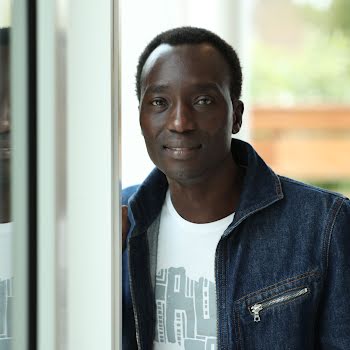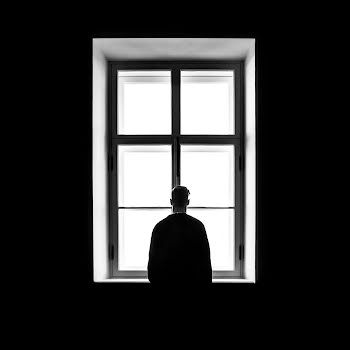
Living with fibromyalgia: ‘I feel like a 32-year-old trapped in an 80-year-old’s body’
By Jennifer McShane
12th Sep 2020
12th Sep 2020
Jennifer McShane speaks to a young Irish woman who says her life was forever changed by chronic health conditions not visible to others — and why our attitudes toward them need to change
“I remember the first day I felt anxiety as a child,” Sarah* from Cork tells me. “It was my first day of school. I was four years old. Instantly the bullying began. It was daily and fierce, with occasional physical violence thrown in. I recognise now as an adult that the depression started at about six. I dreaded school daily, often feigning illness to try to avoid it. I began having nightmares with severe night terrors.”
Sarah says as well as her anxiety and depression, she began to feel physically unwell from an early age; tiredness and aches and pains turned into something more severe. As she had no visible symptoms, Sarah says she was constantly brushed aside, despite the fact that her symptoms never abated.
Related: ‘I was in denial; I was in pain’: Selma Blair gives first interview since revealing MS diagnosis
“At age 15, I started having on and off aches and pains as well as developing insomnia. I was also constantly tired. People put it down to teenage hormones with all my sleeping. At age 16, I started developing Irritable Bowel Syndrome (IBS) with chronic stomach pains, nausea and vomiting. When I went to college at age 17, I ended up in A&E twice with stomach cramps that were so bad, I thought my appendix was ready to explode. I was told I had stress-related IBS and to take Buscopan and go on home. No one questioned my depression, anxiety or the clear stress that I was under.”

“This is how life continued for many years; the IBS, insomnia, depression and anxiety with severe back pain. Then, in my late twenties, someone mentioned fibromyalgia as a possibility and I was diagnosed with fibromyalgia and hypermobility syndrome.”
Sarah says despite the fact that she was extremely unwell, the reactions she received when explaining her health issues weren’t exactly sympathetic — often due to the fact that her symptoms were largely invisible. “The reactions I received ranged. People I worked with, fellow nurses and physiotherapists, said there was no way I could have fibromyalgia as surely I would be crippled with pain and sure, wasn’t I fine.”
Related: When love hurts: Durex’s new ad wants women to talk about painful sex
Then the paranoia kicked in — what if she was thinking her symptoms were worse than they actually were? Maybe all this was normal?
“I tried to explain I did have pain but obviously didn’t want to be complaining constantly in work. It fell on deaf ears and I was told I’d be grand. To be honest, at a certain point, I just thought maybe I’m just a hypochondriac and everyone gets back pain now and then. And everyone feels sick after meals. And has to, occasionally and embarrassingly, throw up in the street.”
She explained that she kept a lot hidden; determined to press on and show everyone around her that she was indeed “fine” and could cope. She looked normal from the outside, which made it harder to explain there was much going on underneath that couldn’t be seen.
Stigmatising
“The depression and anxiety was something I hid from everyone in my life, bar one or two very close friends. I was embarrassed and ashamed of how I felt. I was a strong woman; I could cope. It wasn’t until my mid-twenties that I finally told a doctor. Even then I refused anti-depressants and counselling, with all of the stigma attached to it, especially in my line of work. It wasn’t until a doctor told me himself that he took anti-depressants, that I realised it was okay. They helped massively, thankfully. At age 28, I finally began counselling and that continues to be helpful and needed on a regular basis.”
Related: Suffering from IBS? Maeve Madden found a remedy that works
“The fibromyalgia and hypermobility symptoms are still hard to manage. I feel sometimes like a 32-year-old trapped in an 80-year-old’s body. I was in a car crash three years ago causing muscle damage, whiplash and a flare-up of all symptoms. It has been three hard years of physio, various procedures including one that has left a numb area forever on my upper back and lots of pain management now part of my daily routine.”

Sarah says because she looks so healthy externally, she gets stigmatised and shamed frequently for the measures she has to take when, for example, out and needing to deal with her IBS symptoms.
“I often feel as if people look at me like I’m lazy or unmotivated in life when really I’m just really tired, often nauseated and in a large amount of pain. I have people tell me, ‘but, oh you look fine, or you don’t look sick, you look so healthy!'”
“One stigma I find isn’t immediately obvious is when it comes to job hunting. In my profession, a written medical is usually always required. Here I have to be honest and write my whole medical history down. At that point, and every time I’ve applied for a job, I’ve been called in for a physical meeting and medical examination. I get questioned about my periods of illness from work, have to explain everything from the start of all symptoms to present day in great and embarrassing detail.”
“Stressful and anxiety-inducing”
“I get questioned on my prescribed drug use as if somehow it’s not necessary,” Sarah continues. “I understand why jobs need this information but it makes the process extremely stressful and anxiety-inducing.
Related: What are healing crystals all about and should I give them a go?
“The other thing is I have both a GP and pain specialist who have prescribed regular usage of certain medications, like Solpadiene for breakthrough pain when all else isn’t working. I have had letters written by my GP for my pharmacy explaining this. However, anytime I have a new pharmacist or locum, they question everything again, including the use of certain meds. I have been made to feel like a drug addict in a very public and embarrassing way. I have had to argue and explain that yes, indeed these drugs are recommended and I have a letter in my file stating so.”
The stress of this, she says, can aggravate her condition and symptoms and only add to her feeling embarrassed and uncomfortable when she shouldn’t.
“For example, I have often had to use the disabled toilets because my IBS symptoms are so severe that if I had to wait, I would literally soil myself mid-shop. That prospect is terrifying to me. However, it doesn’t stop the horrendous glares I get coming out of the toilet.”
A change of perception
Sarah says change will only come through speaking out, speaking up and education. “I think the only way things can change is if people speak up about their invisible illnesses,” she said.
Related: ‘Not just a headache’: It’s time to talk about migraine
“Education on such topics should happen frequently and publicly. I would like to see people’s perception’s change. People need to learn that illness isn’t always obvious on the surface. I would like there to one day be a day, where when I explained my illness, people wouldn’t say things like ‘ah, but you look fine.'”
“People need to learn to accept what the person is telling you is true and to not assume anything about a person on meeting them. Hopefully, this would one day lead to people educating themselves enough, so they will understand that sometimes health can be very private and that no one should have to explain or justify their symptoms or illnesses – whether you can see them or not.”
*Name has been changed as per request for anonymity.
Photographs: Unsplash
Related: ‘It’s often dismissed as nothing but the pain is unbearable’
Related: ‘I had to retire from work at 29 on medical grounds. I was devastated’
Related: ‘I was advised not to have kids as there’s a high chance I could lose my leg’























